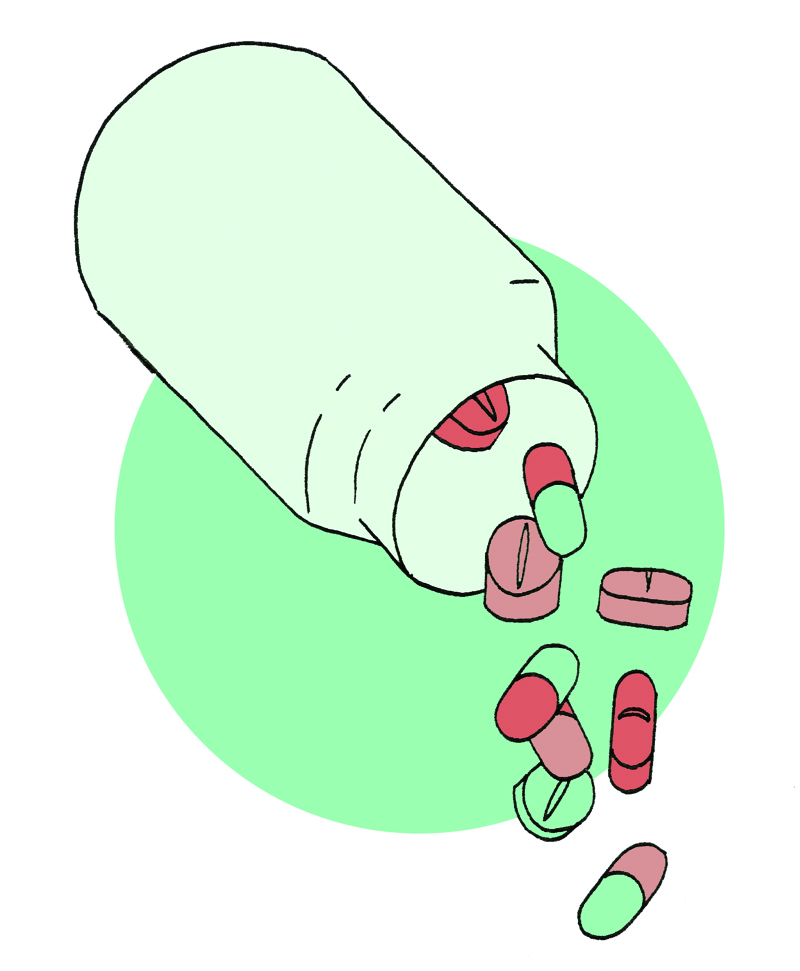McGill’s Dr. Joel Paris discussed the line between pathology and normalcy
While the leaves fell and the seasonal blues kicked in, Dr. Joel Paris, a professor of psychiatry at McGill University, gave a lecture on Oct. 30 about the dangers and consequences of over-diagnosing in psychiatry.
According to Paris, there is no rule of thumb when it comes to differentiating between being sad and experiencing depression. “What is the difference between being unhappy and having a mental disorder? This is not so easy,” he said to those gathered at McGill’s Robert Palmer Howard Amphitheatre. “It is difficult to establish any clear boundary between pathology and normality.”
Over-diagnosis is when an illness or disorder is diagnosed more often than is actually present in patients, Paris explained. Along with under-diagnosis, it is the biggest issue in psychiatry at the moment, according to Paris. “Either you miss something or claim that something is there when it isn’t there,” he said.
Paris told lecture attendees that most psychiatrists tend to favour over-diagnosis when in doubt. Disorders such as schizophrenia are easier to diagnose due to specific symptoms that arise in those affected with the illness, he explained. However, symptoms for disorders such as classical bipolar disorder can be similar to other illnesses, increasing the likelihood of misdiagnosis or over-diagnosis.
“Over-diagnosis leads to overtreatment,” Paris said. “Antibiotics are the classic example, where people with colds get antibiotics. This creates an antibiotic resistance in the population.”
According to Paris, about 11 per cent of Canadians are currently on antidepressants. He said this number demonstrates that antidepressants are being over-prescribed, which is a consequence of over-diagnosis. “People in my field are handing out prescriptions like it’s nobody’s business when it comes to antidepressants, and antipsychotics too,” he said.
According to Paris, over-diagnosis and over-prescribing in psychology and psychiatry has affected the way society views diagnoses of mental illness. He called it a diagnostic epidemic. As he explained, the problem lies in people discussing symptoms as if they were professionally-made diagnoses. “The media picks this up and feeds these epidemics. People talk about these things, even socialize it,” Paris said. The fact that it is common for people to declare, “I think I have ADHD” or “my father is bipolar” without a diagnosis exemplifies this, he added.
In looking at mental disorders and the degree to which they are over-diagnosed, Paris said he has found some common mistakes in the diagnosis of everything from depression and bipolar disorder to post-traumatic stress disorder, attention-deficit hyperactivity disorder (ADHD) and personality disorders. For example, some professionals are likely to diagnose a highly introverted person with Asperger’s syndrome, Paris explained. “People who are highly-introverted just like to be alone,” he said, adding that this does not necessarily mean they fit the diagnostic criteria of the autism spectrum.
According to Paris there needs to be change in the field of psychiatry and in the way our healthcare system addresses mental health. “If everyone in the population received 20 sessions of psychotherapy, the government health system would save a lot of money,” he said as an example.
Mental health services, such as psychotherapy, also receive less funding compared to treatments for physical conditions because of the stigma around mental illness and a common fear in society of being diagnosed with a mental disorder, Paris explained. “I think people hate people with mental disorders because they are afraid to have one themselves,” he said.
Graphic by Alexa Hawksworth
